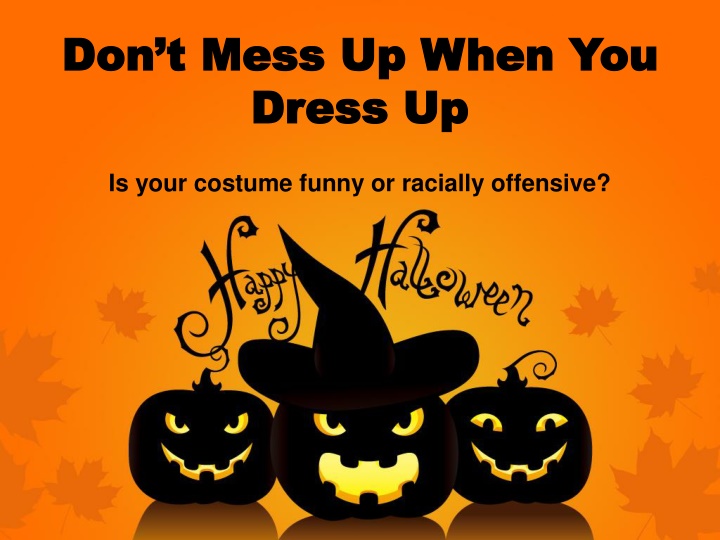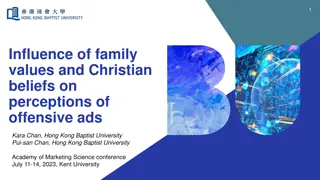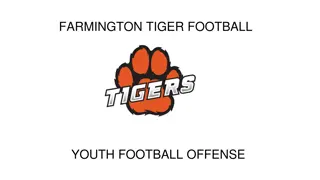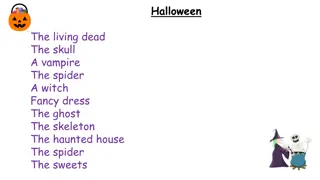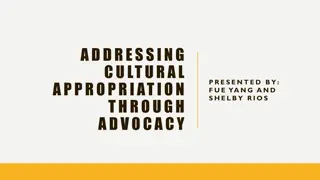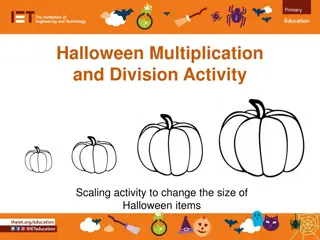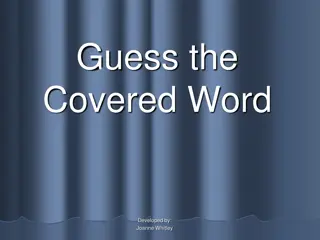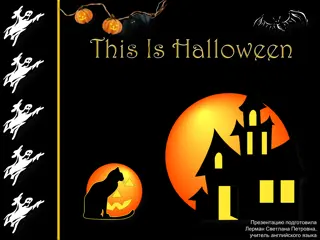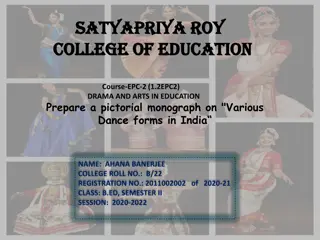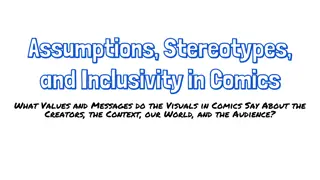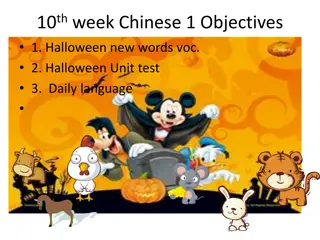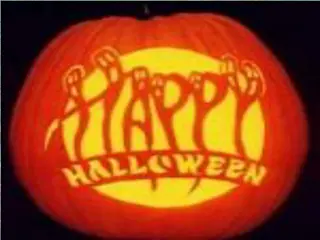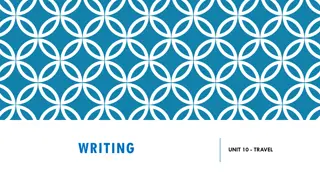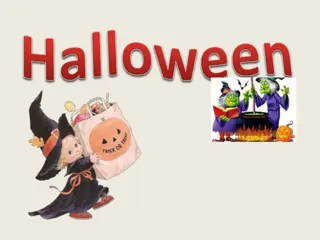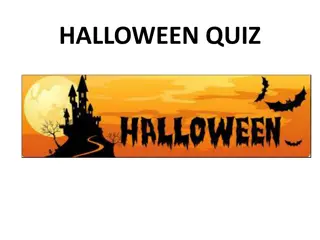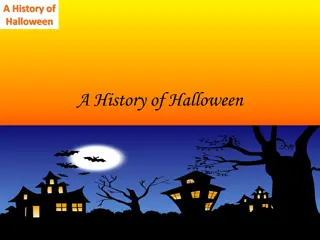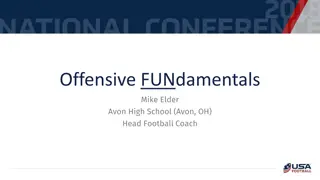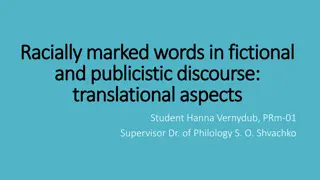Examining the Impact of Racially Offensive Costumes and Cultural Stereotypes on Halloween Celebrations
Controversies surrounding racially offensive Halloween costumes highlight the need for awareness and sensitivity. Costumes reflecting stereotypes, such as "Redneck" or "Geisha," can perpetuate harmful views. Initiatives like Ohio University's STARS campaign aim to educate on the implications of costume choices, urging people to consider the impact of their attire. By understanding the potential harm of culturally insensitive costumes, individuals can promote inclusivity and respect during holiday celebrations.
Download Presentation

Please find below an Image/Link to download the presentation.
The content on the website is provided AS IS for your information and personal use only. It may not be sold, licensed, or shared on other websites without obtaining consent from the author.If you encounter any issues during the download, it is possible that the publisher has removed the file from their server.
You are allowed to download the files provided on this website for personal or commercial use, subject to the condition that they are used lawfully. All files are the property of their respective owners.
The content on the website is provided AS IS for your information and personal use only. It may not be sold, licensed, or shared on other websites without obtaining consent from the author.
E N D
Presentation Transcript
Dont Mess Up When You Don t Mess Up When You Dress Up Dress Up Is your costume funny or racially offensive?
Controversy surrounding racially offensive Halloween costumes and theme parties have become a routine part of the holiday on college campuses. But a group of Ohio University students has taken it upon themselves to school their schoolmates on racist Halloween costumes.
Costumes are often used to make statements, showcase creativity, and evoke laughter. But what can be seen as innocent fun to some, can be viewed as offensive to others.
These images are taken from Ohio University s student group Students Teaching About Racism in Society (STARS) We re a Culture, Not a Costume Halloween campaign. It was designed to encourage people to think twice about the nature of the costumes they choose to wear. This campaign has gained national attention.
Redneck Redneck These costumes can promote the stereotype that poor whites are ignorant and worthy of ridicule. They suggest that poor and working class whites are inherently inferior to their more affluent counterparts.
Geisha Geisha Considering that geishas are perceived to be high-end prostitutes in many circles is a cause for concern. Also troubling is that, along with the dragon lady, china doll and lotus blossom, the geisha girl is a racial and sexual stereotype thrust upon Asian women. The geisha stereotype paints Asian women as submissive, doll-like and existing only to sexually gratify others.
Muslims Muslims The 2001 terrorist attacks on the World Trade Center not only put Arab and Muslim Americans under additional scrutiny in the U.S., they also resulted in a rise in costumes related to Islamic fundamentalism. These costumes are more likely to offend people you encounter than make them laugh. And they raise the worse stereotypes about Muslim Americans, the overwhelming majority of whom are peaceful, law-abiding citizens.
Native American Native American Considering the backlash against Native American mascots in sports, it should be no surprise that donning an American Indian costume might rub some people the wrong way. Whether you re a kid dressing up as an Indian during a Thanksgiving play or an adult rooting for your favorite sports team while wearing faux war paint and a headdress, you may get a negative reaction because these costumes typically paint Native Americans as cartoonish and savage.
Ghetto/Black Person Ghetto/Black Person Ghetto Fab costumes invoke stereotypical images of African Americans as low-class, thuggish and sexually provocative, among others. These costumes tend to be racist and classist. Black face has a deeply rooted racial history in the U.S. It extends back to minstrel shows in which white actors would paint their faces black, and lips red or white, to mock the physical appearance of African Americans and perform grotesque comedy based on the idea that black people aren t human beings.
Asians Asians Asian Americans have been stereotyped as a "model minority"; that is, positive traits are applied as a stereotype. Asians as a whole are seen as hardworking, studious, intelligent, productive, and inoffensive people who have elevated their social standing through merit and diligence. The model minority stereotype is a misconception that exaggerates the success of Asian Americans, alienates them from other people of color, and dismisses the actual experiences of racism they face.
Thoughts? Thoughts ? I learned something new. Stop being sensitive. I may need to select another costume. Don t be so uptight. Have I offended others with past costumes? Get over yourselves and learn to recognize real racism!" ___________________________________________
The reactions to this information may vary, but the goals of the campaign are simple: Raise awareness Raise awareness Create dialogue Create dialogue
Its about respect, human dignity, and the acceptance of other cultures (these posters simply ask people to think before they choose their Halloween costume). STARS Member
Thank you! The Multicultural Center
